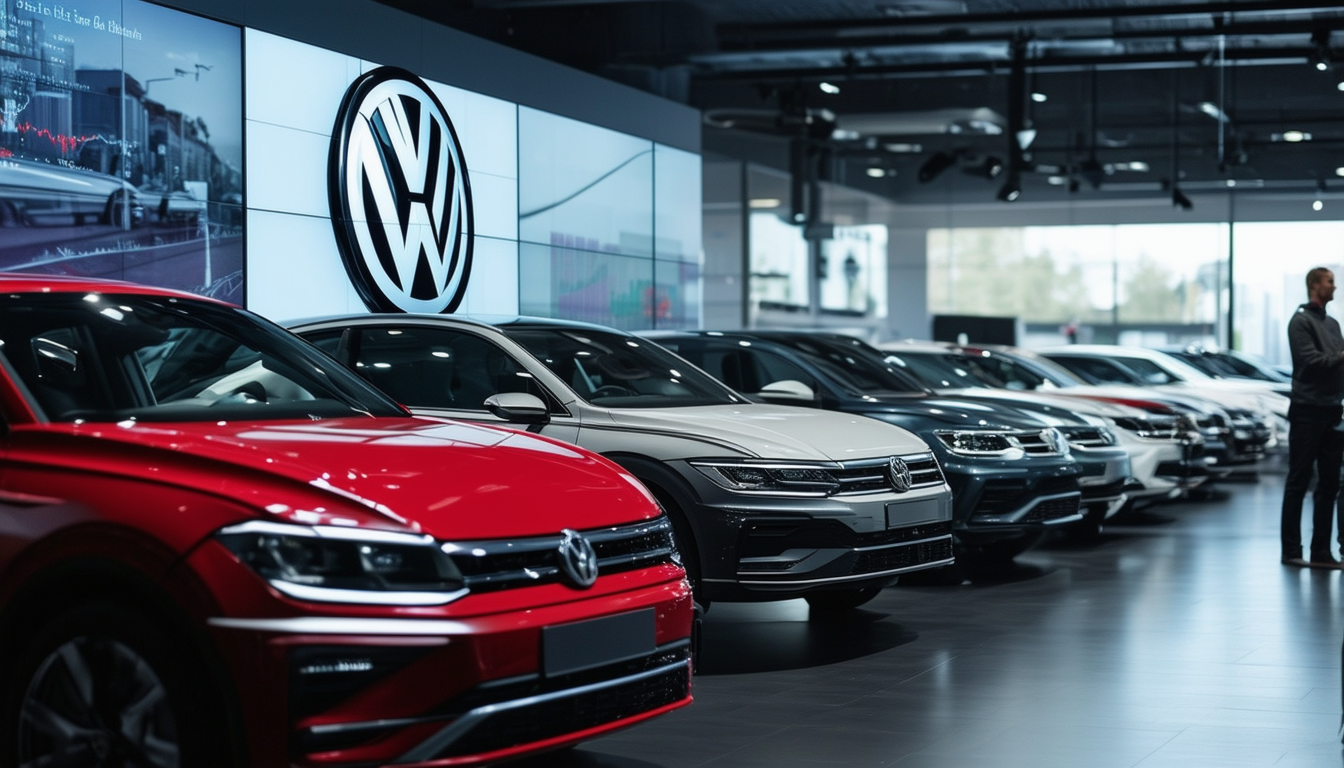Volkswagen: keys and causes of the intense crisis affecting the iconic German automotive brand

Volkswagen, one of the most iconic automotive brands in Germany, is facing an intense crisis marked by a series of critical challenges that have tested its economic stability and position in the global market. The historic decision to close factories in Germany, along with fierce competition from new players like Tesla and Chinese manufacturers, has triggered a significant drop in Volkswagen’s profits. Structural issues such as the gradual transition to electric vehicles and high labor costs compared to its rivals are some of the factors that have exacerbated the situation for this iconic brand.
Volkswagen, one of the most iconic brands in the German automotive industry, is facing a deep crisis marked by a combination of economic, industrial, and political challenges. From the loss of profits and global sales to the need to adapt to a new world dominated by electric vehicles, the company is undergoing a drastic change in its operations.
The impact of the crisis in Germany
For the first time in its 87-year history, Volkswagen plans to close three of its factories in Germany, a historic move that is provoking angry responses from unions. The company justifies this decision as part of a necessary cost-saving plan in the context of declining sales and increasing competition, mainly from Chinese manufacturers and Tesla.
The importance of software and batteries
In a world where software and batteries represent a large part of the value of modern cars, Volkswagen and other German automotive giants like Mercedes and BMW have inadequately adapted to this transformation. The ability of these manufacturers to compete against new players focused on electric vehicles has diminished, affecting their sales figures worldwide.
Strikes and union pressure
In response to the announcement of factory closures, several plants in Germany have initiated “warning” strikes against Volkswagen. These strikes, initially short-lived, will continue to escalate if no agreement is reached. Moreover, the lack of significant technological advancements has resulted in high labor costs, undermining the brand’s global competitiveness.
Competition and global scenarios
The slowdown in Volkswagen’s sales is not only happening in Germany. In Europe and China, crucial markets for the brand, changes in demand and the growing number of competitors have led to a challenging situation. BMW and other manufacturers face similar dilemmas.
Economic pressure in other countries
Volkswagen has a significant presence in places like Mexico, where it has five production sites. Threats of high tariffs, especially from the United States, could endanger not only Volkswagen’s operations but also those of the related industries.
The uncertain future in Europe and other regions
The situation in Europe is equally complicated with the decline in market sales, which have fallen by nearly 2 million since the pre-pandemic peak. The rise of protectionism, reflected in increasing potential tariffs, poses a significant threat to Volkswagen’s European business.
The need to restructure the industry
The restructuring of the German automotive industry seems inevitable. The elimination of subsidies for purchasing electric vehicles and the shift towards the new automotive economy is vital for the survival of big names like Volkswagen, which sees energy efficiency and technological innovation as the way forward.
Reflections on the Future of Volkswagen
The crisis facing Volkswagen highlights a crucial moment not only for the company but also for the automotive industry as a whole. This situation reflects the imperative need for adaptation of the German industry to new trends and technologies, a challenge that Volkswagen is urgently facing.
One of the determining factors behind this crisis is the delay in the transition to electric vehicles, an area where competitors like Tesla and Chinese manufacturers have taken a clear lead. The value is now centered on software and batteries, areas where Volkswagen still needs to strengthen its position to regain competitiveness.
Moreover, the political and economic environment, both inside and outside Germany, adds a layer of complexity to the company’s situation. The threat of tariffs from the United States, restrictive fiscal measures in Europe, and the elimination of subsidies for electric vehicles in Germany further complicate the landscape.
In this context, the significant labor impact, exemplified by the strikes and the possibility of plant closures, underscores the social relevance of this crisis. Unions and workers play a crucial role in pushing for a balanced solution that protects jobs and ensures the long-term viability of the business.
Volkswagen faces an uncertain future, where the need for innovative strategies and bold decisions is more pressing than ever. The company must not only cut costs but also redefine its technological path, in an effort to stay afloat in a rapidly evolving global market.
The case of Volkswagen resonates throughout the global automotive industry, representing a crossroads where tradition and innovation must coexist to build a sustainable and profitable future. This episode could signify a turning point, not only for the iconic brand but for an entire sector seeking to redefine its relevance in the 21st century.




